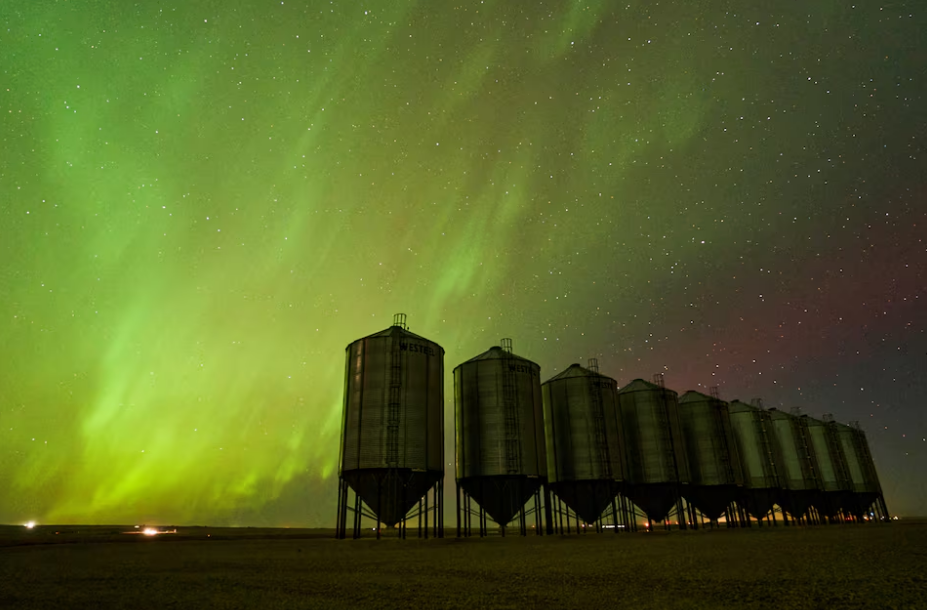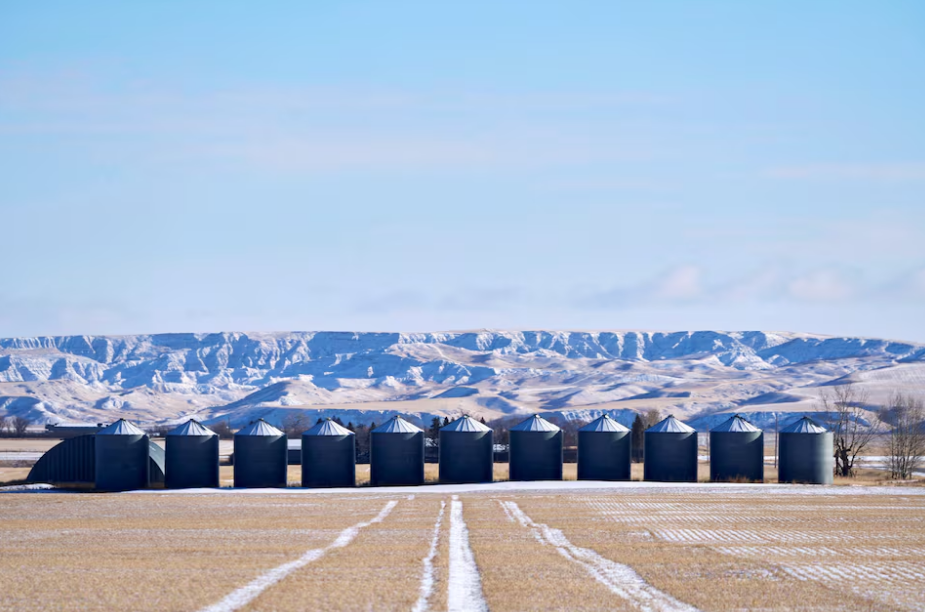REGINA, Saskatchewan -- Canadian farmer Bill Prybylski planned to buy a new tractor with proceeds from crops sold to two grain companies in early 2024.
He delivered the grain before both companies declared bankruptcy, leaving him short C$165,000 ($113,487.86) they owed. Now Prybylski has no money to replace his old tractor.
Hundreds of Canadian farmers have received delayed payments for their crops or not been paid at all, as a growing number of grain-buying firms declare bankruptcy amid drought and low commodity prices, according to interviews with dozens of farmers, a government agency, and a review of bankruptcy documents.
Farmers are discovering they are not necessarily protected from the failures, revealing holes in Canada's farm safety net.
The bankruptcies are adding to farmer troubles in Canada, the world's top canola and No. 3 wheat producer, while they also brace for tariffs from the United States.
Prybylski, who farms in Willowbrook, Saskatchewan, is relying on a line of credit to cover the shortfall until he harvests the next crop in autumn.
"Where do we cut our expenses? Or how do we get more revenues to do the things we need to do?" Prybylski asked. As planting season approaches, he needs to buy fertilizer, seed and fuel.
Farmers can sell crops to companies that operate storage terminals, merchants and other farmers who fatten livestock. They are generally paid a few weeks after they deliver grain and have long incurred most of their costs, a problem for those who deliver to a buyer that goes broke before paying.
Canadian farmers have some financial protection through the federal government-run Canadian Grain Commission, which regulates crop transactions, oversees grain company failures and at times covers some of what farmers are owed by failed companies. The CGC pays compensation from bonds and other security that licensed companies are required to post.
The CGC managed four company failures in 2024, compared to zero or one most years, and the most since at least 2001, according to government data.
But some unlicensed companies have also failed, suggesting the troubles may be broader.
Farmer Christi Friesen said grain buyer Agfinity tried to delay paying her for three loads of peas, though it ultimately paid the C$75,000 it owed plus interest.
Agfinity declared bankruptcy on November 25.
"I needed to fight," said Friesen, who farms 5,000 acres (2,023 hectares) of cropland in Alberta's Peace region. "I kept being a pain in the ass."
Discovering that some failing companies, such as Agfinity, are unlicensed, has alarmed farmers, as has finding out that some licensed companies are not fully insured.
The situation "has fully exposed that we are not secure," said southern Saskatchewan farmer Cherilyn Jolly-Nagel.
Companies directly buying crops from farmers must, by law, be licensed with the CGC, with few exceptions. For legal enforcement, the agency must complain to the Public Prosecution Service of Canada, which then decides whether to take action.
The CGC has not made such a complaint in at least seven years, said spokesperson Christianne Hacault.
Other flaws in farmer protections are the CGC's requirement that farmers report non-payment within 90 days, and licensed firms who fail to post adequate security, farmers say.
The CGC is holding consultations with farmers about its protection system, Hacault said.
"We know there are gaps."
The federal agriculture minister's office, which oversees the CGC, did not respond to a request for comment.
Agfinity owner Joseph Billett told Reuters that reduced sales due to smaller crops, farmers' reluctance to sell at low prices and competition from imports of U.S. corn to feed cattle pushed the company over the edge.
"These three factors made profitability very challenging, and for us, impossible, these past few years," Billett said.
|
|
| A view of farmers' grain storage bins in a field near Claresholm, Alberta, Canada January 18, 2025. Photo: Reuters |
Dust bowl
Farmers in the western half of Canada's Prairies have grown stunted crops for four years due to dry conditions. In some places, farmers say they are facing the worst prolonged drought since the 1930s Dust Bowl.
Crop insurance claims between 2021 and 2024 shot up seven-fold compared to the previous four-year period due to drought-damaged crops, according to agencies in Alberta and Saskatchewan.
Numerous small grain companies, brokers and merchants are among Canadian crop buyers, unlike some countries that are dominated by global players.
In the United States, farmers also had low prices to deal with, but their crops had better growing conditions, allowing them to salvage revenue. Some states regulate grain companies so that farmers have protection against non-payment, but the situation varies state-to-state.
In Canada, some companies have avoided bankruptcy, but are still struggling.
Farmer-built North West Terminal in Unity, Saskatchewan, said in September it would stop buying grain at least through July to avoid losses.
In an interview, NWT CEO Jason Skinner said intense competition to buy reduced crops hit his company, though it has avoided bankruptcy.
"We've seen some significant headwinds and . . . margins that aren't covering costs," Skinner said.
In May, LSM Grain picked up two truckloads of red lentils, worth about C$50,000, from Saskatchewan farmer Kelly Arthurs, but did not pay him. The CGC revoked LSM's license in July.
The company could not be reached for comment.
Arthurs complained to the CGC within 90 days of delivering his grain and was eventually compensated.
But 17 farmers owed a combined $842,000 by LSM waited too long and will not qualify for compensation, according to a bankruptcy document and the CGC. Prybylski is one of them.
Global Foods and Ingredients also went broke owing Prybylski money in the spring. He submitted his complaint in time to qualify for coverage, but only received 75% of what he was owed because Global had posted insufficient security.
A law firm representing Global Foods did not respond to a request for comment.
Arthurs said he felt so much stress from months of fighting to get paid that he may quit farming.
"It's time to retire."
($1 = 1.4295 Canadian dollars)






















































